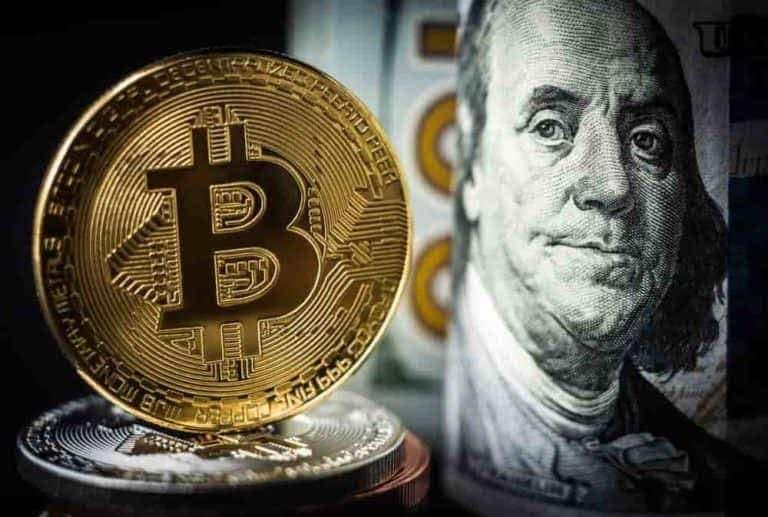$36.9 Trillion and Counting: Is Bitcoin Quietly Preparing to Replace the US Dollar?

Key Takeaways:
- Coinbase CEO warns: Bitcoin may become the global reserve currency if U.S. debt remains unchecked.
- U.S. national debt hits $36.9 trillion in 2025—raising fears about long-term dollar dominance.
- Institutional adoption of Bitcoin surges as confidence in U.S. fiscal discipline declines.
As U.S. debt balloons past $36.9 trillion in 2025, a wave of concern is rising across financial and crypto sectors. Coinbase CEO Brian Armstrong issued a bold statement that is now fueling widespread debate: If the U.S. doesn’t regain control of its budget, Bitcoin could replace the dollar as the world’s reserve currency.

Mounting U.S. Debt Sparks Reserve Currency Debate
Armstrong: “Bitcoin will take over if Congress fails”
In a post that quickly went viral on X, Coinbase co-founder and CEO Brian Armstrong responded to new data from World of Statistics highlighting the trajectory of U.S. national debt—from $34.0 trillion in 2023 to $36.9 trillion in 2025.
“If the electorate doesn’t hold Congress accountable to reducing the deficit, and start paying down the debt, Bitcoin is going to take over as reserve currency,” Armstrong wrote.
While he emphasized his support for the U.S. economy, his post underscores a larger concern: A lack of fiscal discipline in Washington may erode global trust in the dollar and accelerate the shift toward decentralized alternatives.

Read More: Coinbase Breaks Barriers: First-Ever Crypto Company Added to the S&P 500 Index
A Global Currency Shift? What It Would Take for Bitcoin to Replace the Dollar
Historic Context: Why the Dollar Still Reigns—for Now
Since World War II, the U.S. Dollar has reigned supreme as the world’s leading reserve currency, underpinned by a powerful economy, stable political system and deep financial markets. Over 58% of global FX reserves are still held in USD today.
But with interest on U.S. debt projected to top $1 trillion a year, cracks are showing in the financial foundation. For similar reasons, confidence in the dollar is not infinite — and Bitcoin, as a decentralized asset with a limited supply, is emerging as a hedge against what many see as reckless fiscal policy.
Barriers to Bitcoin Supremacy
Although Bitcoin is growing in popularity, it remains structurally constrained:
- Volatility: Though decreasing, Bitcoin remains more volatile than fiat currencies.
- Regulatory uncertainty: Sovereigns remain cautious about embracing non-state currencies.
- Limited usage as medium of exchange: Bitcoin is still not widely used in day-to-day transactions.
But these limitations haven’t stopped institutions from ramping up exposure.
Bitcoin Enters the Boardroom: The Institutional Bet on Digital Gold
BTC over $100,000 and Spot ETFs Turn Heads
In 2025, Bitcoin’s price has stabilized above the $100,000 mark—up significantly from its all-time high of $69,000 in 2021. The launch of multiple spot Bitcoin ETFs in both the U.S. and Asia has added legitimacy and accessibility for institutional investors.
Fidelity, BlackRock, and Ark Invest now allocate a portion of their portfolios to Bitcoin. Sovereign wealth funds from countries like Singapore and Norway have reportedly tested small BTC positions.
The asset is no longer just a speculative tool for retail traders—it’s entering pension fund territory.
Reduced Volatility Strengthens Case
Bitcoin’s 30-day volatility has declined from 4–5% during earlier bull runs to closer to 2% in 2025, thanks to higher liquidity and institutional market-making. As the asset matures, critics who cite instability as a disqualifier are finding themselves on shakier ground.
Elon Musk Joins the Chorus: “Fire Them All”
While Armstrong’s post focused on financial warnings, Elon Musk took a more political stance. In a flurry of late-night posts, Musk criticized what he called “mammoth spending bills” passed by Congress.
“Interest payments already consume 25% of all government revenue. If the massive deficit spending continues, there will only be money for interest payments and nothing else,” he posted.
Musk, who previously advised the White House on AI strategy, also supported the idea of firing all lawmakers who backed recent omnibus spending bills, especially the 215 Republicans who voted in favor.
His tone was unmistakable: “In November next year, we fire all politicians who betrayed the American people.”
Read More: Crypto Bull Run Phase 3 Ignites as Elon Musk Cuts Political Ties – Are You Ready?
Growing Calls for Financial Reform in Washington
Bipartisan Inaction Fuels Bitcoin Narrative
Both major U.S. parties have shown little appetite for reducing entitlement spending or raising taxes—two levers that could realistically curb the debt.
The result is a financial status quo: continuous deficit spending, growing debt service, and little structural reform. Against this backdrop, Bitcoin offers a fundamentally different model—one immune to central bank manipulation, capped in supply at 21 million, and operating beyond government control.
From Fringe to Mainstream: The Rise of Hyperbitcoinization Theories
The term “hyperbitcoinization”—once confined to Bitcoin maximalist circles—is now appearing in investment memos and macroeconomic reports. Analysts at JPMorgan and Deutsche Bank have published outlooks considering Bitcoin as a “complementary asset to gold” in reserve strategies.
Even the IMF, historically skeptical of crypto, recently acknowledged in a report that “a gradual erosion of trust in fiat systems could increase the use of decentralized assets in cross-border reserves and trade.”
The post $36.9 Trillion and Counting: Is Bitcoin Quietly Preparing to Replace the US Dollar? appeared first on CryptoNinjas.
